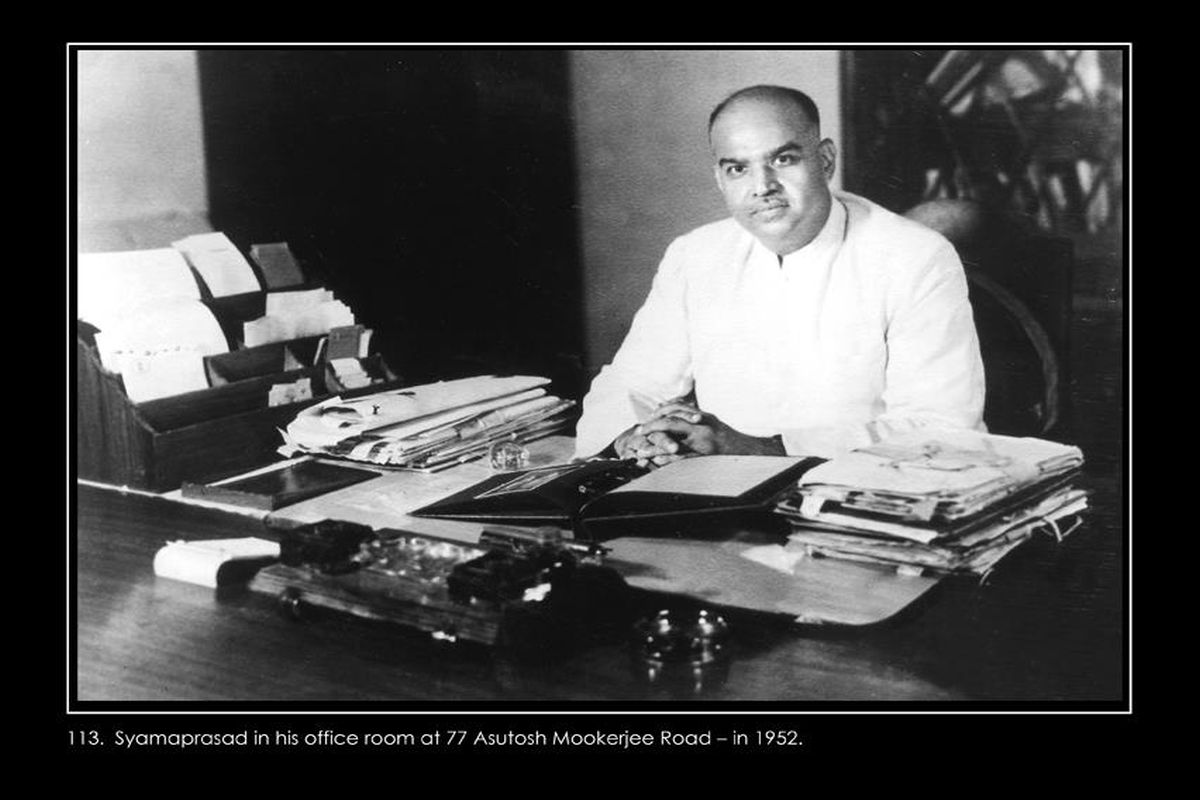BJYM leader shot, injured in Jammu
Jammu district's Bharatiya Janata Yuva Morcha (BJYM) president, Kanav Sharma, was on Friday injured after he was shot by unidentified persons in the New Plot area of the city.
Born in Kolkata, Mukherjee was against the concept of J&K being a state within the state with its separate constitution, flag and prime minister.

Mukherjee came to Kashmir in 1953 and observed a hunger strike. (Image: Facebook/@drshyamaprasad)
Having announced abrogation of the controversial Article 370 that granted special status to Jammu and Kashmir, the Modi government has fulfilled the long-cherished dream of the founder of Bhartiya Jana Sangh (now BJP) Shyama Prasad Mukherjee, who died under mysterious circumstances in a Srinagar prison as a detainee on 23 June 1953 while demanding complete integration of the state with the rest of the country. It has taken 66 years after his death to fulfil his dream of revoking Article 370.
Born in Kolkata, Mukherjee was against the concept of J&K being a state within the state with its separate constitution, flag and prime minister. Mukherjee raised the slogan “Ek desh mein do Vidhan, do Pradhan aur Do Nishan nahi chalenge” (A single country can’t have two constitutions, two prime ministers and separate flag).
Advertisement
Mukherjee was strongly opposed to Article 370, seeing it as a threat to national unity. He fought against it inside and outside the parliament with one of the goals of Bharatiya Jana Sangh being its abrogation. He raised his voice strongly against the provision in his Lok Sabha speech on 26 June 1952. He termed the arrangements under the article as Balkanization of India and the three-nation theory of Sheikh Abdullah.
Advertisement
The state was granted its own flag along with a prime minister whose permission was required for anyone to enter the state. Bharatiya Jana Sangh, along with Hindu Mahasabha and Jammu Praja Parishad, launched a massive agitation to get the provisions removed. In his letter to Nehru dated 3 February 1953, he wrote that the issue of accession of Jammu and Kashmir to India should not be allowed to hang fire.
Mukherjee came to Kashmir in 1953 and observed a hunger strike to protest the law that prohibited Indian citizens from settling within the state and mandating that they carry a permit. Because of the prevailing permit system, Mukherjee was not given permission. He was arrested on 11 May at Lakhanpur while crossing the border into Kashmir “illegally”. Although the permit rule was revoked owing to his efforts, he died as a detainee on 23 June 1953 under mysterious circumstances.
Advertisement